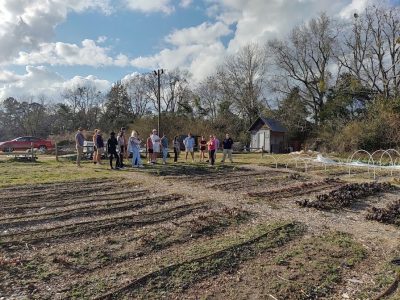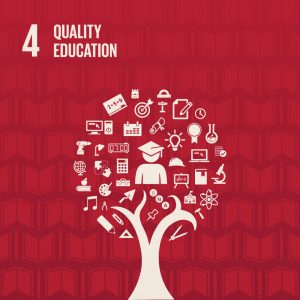By Becki Retzlaff.
Many students choose to study at Auburn because it is a big school that can provide many different opportunities for a wide variety of interests. As the Sustainability Tracking, Assessment, and Rating System (STARS) attests, one of those opportunities for students is to learn about sustainability from many different perspectives. STARS is the way that many universities measure sustainability, and Auburn has achieved a Silver rating, due to, in part, its impressive academic offerings in sustainability. According to the latest STARS rating, Auburn is second only to the University of Georgia in the number of undergraduate sustainability and sustainability-adjacent classes among SEC schools. 12 percent of all the classes at Auburn cover an aspect of sustainability. Auburn faculty offer 335 classes that directly address sustainability and 1,535 classes that includes some sustainability content at the undergraduate level. An additional 228 graduate-level sustainability classes and 385 sustainability-adjacent classes are offered at Auburn. That is a huge opportunity for every student at Auburn to learn about sustainability!

Class visiting the Community Garden
With a total of 1,870 undergraduate sustainability classes that are offered in nearly every college, there is no shortage of opportunities to learn about how to apply sustainability principles to a diverse range of fields. 82 percent of departments across campus have at least one sustainability course offering. Some of those classes are high-impact immersive experiences, such as BIOL 4970: Biodiversity, Conservation, and Sustainability, offered for ten days in Costa Rica prior to the pandemic. In this class, students experienced Costa Rican culture, explored diverse tropical ecosystems, learned about sustainable agricultural practices, and conducted research projects related to ecology and conservation. However, not all sustainability classes take students to the far reaches of the planet. Many classes explore sustainability concepts right here in Auburn, Alabama. In SUST 5000, the Sustainability Minor capstone class, students work on a real-world sustainability project on campus, such as helping researchers improve their laboratory environment through a Green Labs report, designing new parks on campus, or helping campus dining promote a plant-based diet in campus dining halls. The exciting thing about these sustainability classes is that students can choose from anything that interests them, determine the problems that need solving, and learn how to address those issues in a sustainable way. Issues relating to sustainability can be found in every field of study, and in every corner of the planet.
With so many sustainability class offerings, students can add sustainability courses to any major by simply choosing sustainability electives in their field, adding the Minor in Sustainability Studies to their degree, or taking any number of sustainability classes in different or related fields. These strategies add value to a degree, help students understand the connectivity of the world, and helps them learn to approach problems from a sustainability framework. From an economics major who learns about sustainable economies, to a transportation engineering major who learns about the importance of walkable and bikeable communities, to an art major who learns to explore art through a sustainability lens, Auburn is a leader in helping students learn about sustainability in many fields of study, as evidenced by Auburn’s impressive record of success in the STARS reporting system.
As a leader in sustainability in the Southeast and the SEC, how can Auburn continue to improve? How can Auburn reach even more students and send them out into their chosen fields ready to tackle the planet’s most pressing sustainability challenges? Universities have chosen from several models for increasing sustainability in curriculums. One idea is to add sustainability to the student learning objectives and the core curriculum at Auburn, to assure that every student who graduates will be literate in sustainability generally and be ready to apply it to their chosen field. That idea would spread sustainability broadly throughout every major, and has been done at other universities such as Pacific University in Oregon. Another model is for faculty and programs to develop sustainability learning objectives in different majors, specific to the needs of each field. That idea would foster more field-specific understandings of sustainability issues. An example of a university that has used this approach is Northern Arizona University. Whatever path Auburn decides to follow into the future, we can be sure that it will build on the success of its academic sustainability offerings and continue to be a leader in sustainability in the Southeast and the SEC, and the STARS Report outcomes provide proof of that.
Post contributed by Becki Retzlaff, Director, Academic Sustainability Program
Learn about the SDGs & AU and Auburn’s contributions related to this post:






